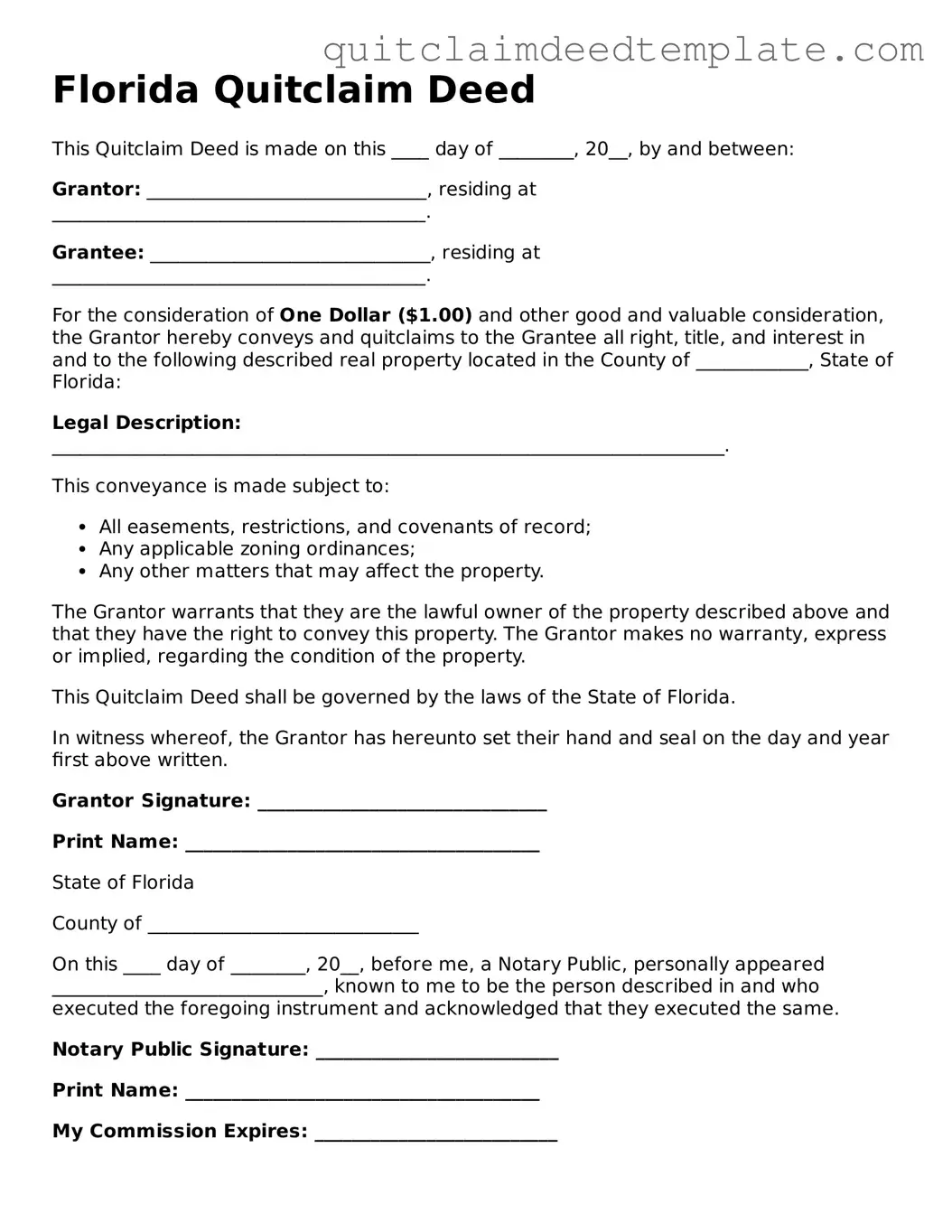Documents used along the form
The Florida Quitclaim Deed form is often used in real estate transactions to transfer ownership of property. However, several other forms and documents may accompany it to ensure a smooth transfer process. Below is a list of commonly used documents that may be relevant.
- Warranty Deed: This document guarantees that the seller holds clear title to the property and has the right to sell it. It provides more protection to the buyer compared to a quitclaim deed.
- Property Transfer Tax Form: This form is required to report the transfer of property and calculate any applicable taxes. It ensures compliance with state tax laws.
- Affidavit of Title: A sworn statement by the seller confirming their ownership of the property and that there are no liens or claims against it. This document helps protect the buyer from future disputes.
- Title Search Report: A report that outlines the history of the property title. It identifies any existing liens, encumbrances, or claims that may affect ownership.
- Closing Statement: This document summarizes the financial aspects of the transaction, including the sale price, closing costs, and any adjustments. It is reviewed and signed at closing.
- Mortgage Documents: If the buyer is financing the purchase, these documents outline the terms of the loan, including interest rates and repayment schedules.
- Homestead Exemption Application: This form allows homeowners to apply for tax exemptions based on their primary residence. It can reduce property taxes for qualifying individuals.
- Power of Attorney: This document allows one person to act on behalf of another in legal matters, including property transactions. It can be useful if the seller is unable to be present at closing.
Each of these documents plays a crucial role in ensuring that property transactions are conducted legally and smoothly. Understanding their purposes can help parties involved in the transaction navigate the process more effectively.
